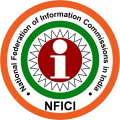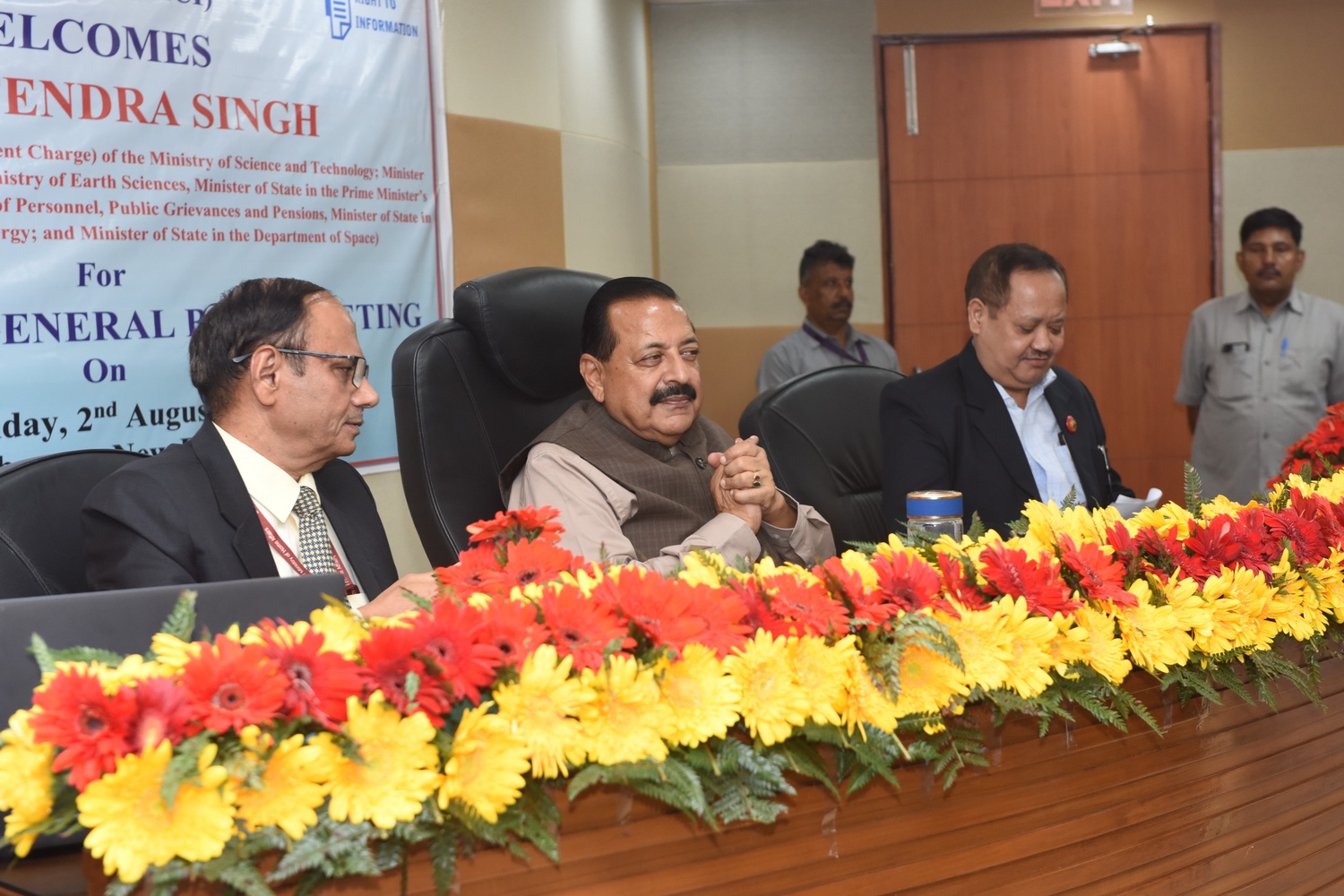1. Introduction
2. Formation
3. The aims and objects of the Federation
4. NFICI Membership
5. Downloads
1. Introduction
The National Federation of Information Commissions in India is emerged out of RTI Act to strengthen the Right to Information Act, 2005. The Right to Information Act, 2005, came fully into effect on 12th October, 2005 (on the 120th day after its enactment). It is one of the most significant legislations enacted by the Parliament of India. The Act enables the establishment of an unprecedented regime of the Right to Information for the citizens of the country. It overrides the ‘Official Secrets Act’ and similar laws/rules which are now in force. It strikes at the heart of the paradigm long practiced by Government officials and public functionaries that ‘confidential is the rule and disclosure is an exception’. The Act seeks to establish that “transparency is the norm and secrecy is an exception” in the working of every public authority. It aims to ensure maximum openness and transparency in the machinery and functioning of Government at all levels.
The Right to Information is expected to lead to an informed citizenry and transparency of information which are vital to the functioning of democracy. It will contain corruption and enable holding Governments and their instrumentalities accountable to the governed.
A key strength of the Act pertains to administrative and adjucative autonomy of Information Commissions. The Central and State Commissions have identical powers and responsibilities, and exercise exactly the same authority, in respect of institutions within their respective jurisdictions. The Act clearly defines the roles, responsibility and jurisdiction of the (national and sub-national bodies), Central Information Commission and the State Information Commissions. Each is independent of the other.
The Central Chief Information Commissioner through notification F.No.10/12/2009/Admn/ CIC, dated 12-01-2009 constituted a Sub-Committee to undertake an in-depth study and analysis of the problems and issues raised during the Annual Convention 2008 and to explore ways and measures for strengthening the information regime and to suggest an action plan for effective implementation of the RTI Act, 2005.
Following Terms of Reference (ToR) were assigned to the Committee:
- To assess the extent to which the recommendations made by the Commissions, under section 25 of the RTI Act, have been implemented; and, to identify the major reasons, if any, for non-implementation of Commissions’ recommendations.
- To prepare a comprehensive status report in respect of the major themes of Annual Convention of 2008, namely RTI and good governance, RTI and democracy, RTI and poverty alleviation, RTI and protection of individual privacy and RTI revolution in SAARC;
- To assess the adequacy of facilitation process for accessing public held information, mainly in terms of compliance of various provisions of the Act for promotion of maximum disclosure of information;
- To identify the best practices in implementation of RTI Act to promote open government and to outline an action plan for adoption/ adaptation by public authorities;
- To evolve an approach and suggest a methodology for assessing and grading public authorities in terms of greater transparency and accountability and least corruption; and
- To suggest modalities for creation of a permanent broad-based body for the purpose of coordination of various activities of CIC and SICs.
One of the concrete achievements that emanated from the recommendations of the Sub-Committee was formation of a Federation of Central Information Commission and all the State Information Commissions. It was registered as “National Federation of Information Commissions in India” (NFICI) in Hyderabad on 01-09-2009 with Registration No.479 of 2009.
3. Aims and objects of the Federation
- To facilitate coordination and mutual consultation among the Central Information Commission and the State Information Commissions constituted under the Right to Information Act 2005.
- To strengthen the administration of the Act, through education, research and dissemination of knowledge;
- To facilitate the exchange of information on laws and their interpretation, landmark judgments, case law and best practices related to the Act in India.
- To collect, compile and analyze relevant information relating to the implementation of the Act and to take up appropriate issues of importance with the Government of India and State Governments;
- To promote knowledge and encourage initiatives in matters related to transparency and accountability in governance and to engage the stakeholders such as the Central and State Governments and the citizens and civil society in these matters;
- To promote use of information technology , modern management techniques and tools for effective implementation of the Act;
- To establish collaboration with research institutions, universities and similar organizations for helping the cause of administration of the Act and furtherance of the objectives of the society;
- To undertake, organize and facilitate tours, studies, research, lectures, seminars and conferences on the administration and practice of the transparency laws including the Right to Information Act and to provide for the publication of journals, research papers and books in the furtherance of the aforesaid objects and to disseminate information for wider use;
- To create a secretariat cum resource centre with adequate facilities for research and technical support to the society for its day to day administration and functions;
- To establish procedures for smooth functioning of the Society and carry out activities in matters relating to personnel, finances, administration, purchases etc.;
- To purchase, accept as a gift or otherwise acquire and own or take on lease or hire, temporarily or permanently any movable or immovable property necessary for the furtherance of the objectives and activities of the Society;
- To sell, assign, mortgage, lease, exchange and otherwise transfer or dispose of or otherwise deal with all or any property, movable or immovable, of the Society;
- To build, construct, maintain, repair, adapt, alter, improve or develop or furnish any buildings or works necessary or convenient for the purposes of the Society;
- To appoint or employ, temporarily or permanently, any person or persons that may be required for purposes of the Society and to pay them or other persons in return for services rendered to the Society salaries, wages, gratuities, provident fund and pensions;
- To institute, offer and grant prizes, awards, scholarships and stipends in furtherance of the objects of the Society;
- To make and enforce Rules and Bye-Laws, and from time to time to repeal, amend or alter the same;
- To pay all costs, charges and expenses incurred in the promotion, formation, establishment and registration of the Society.
In order to achieve the goal of Aims & Objectives of the society, all the Information Commissions in India are encouraged to become members of the Federation by paying requisite fee.
On constant and continuous pursuation, the following Commissions, enrolled themselves as members to NFICI. Year wise details of the Commissions enrolled as members furnished below.
| Year 2010-2011 | ||
|---|---|---|
| 1 | Sikkim Information Commission | |
| 2 | Andhra Pradesh Information Commission | |
| 3 | Haryana Information Commission | |
| 4 | Bihar Information Commission | |
| 5 | Uttara Khand Information Commission | |
| 6 | Meghalaya Information Commission | |
| Year 2011-2012 | ||
| 7 | Odisha Information Commission | |
| 8 | Punjab Information Commission | |
| 9 | Goa Information Commission | |
| 10 | Karnataka Information Commission | |
| 11 | Himachal Pradesh Information Commission | |
| 12 | Manipur Information Commission | |
| 13 | Nagaland Information Commission | |
| 14 | Central Information Commission, New Delhi | |
| 15 | Tamil Nadu Information Commission | |
| 16 | Kerala Information Commission | |
| 17 | Rajasthan Information Commission | |
| 18 | Chattisgargh Information Commission | |
| Year 2012-2013 | ||
| 19 | Mizoram Information Commission | |
| 20 | West Bengal Information Commission | |
| 21 | Maharashtra Information Commission | |
| Year 2013-2014 | ||
| 22 | Arunachal Pradesh Information Commission | |
| 23 | Assam Information Commission | |
| 24 | Jharkhand Information Commission | |
| Year 2015-2016 | ||
| 25 | Gujarat Information Commission | |
| Year 2017-2018 | ||
| 26 | Telnagana Information Commission | |
| Year 2024-2025 | ||
| 27 | Madhya Pradesh Information Commission | |
As the Federation has been financially strengthened with the support of the member Commissions, NFICI started to achieve its goals.
Membership (enrolling as member to NFICI) :- The Membership is open to all Information Commissions in India.
Admission fee and Annual Subscription :- Each State Commission has to pay Rs.5.00 Lakhs towards Admission Fee and Annual Membership fee of Rs.1.50 Lakh.
Memberships enrolled by :- So far 27 State Commissions have enrolled as Members to the Federation which includes the Central Information Commission. The enrolment of membership by the Commissions (financial year wise) is as given in the above table.
- Note on NFICI
- Rules and Regulations, Bye Laws etc.
- Registration document (certificate)
- Minutes of 1st meeting NFICI
- Minutes of 2nd meeting NFICI
- First General Board Meeting - Agenda
- First Executive Committee of NFICI Minutes
- Second Executive Committee of NFICI Minutes
- Third Executive Committee of NFICI Minutes
- Fourth Executive Committee meeting - Agenda
- Audit Report under Section 12A(b) of the Income Tax Act, 1961
- Receipts & Payments Accounts Report - 2012
- Receipts & Payments Accounts Report - 2011
- Receipts & Payments Accounts Report - 2010
- Guidelines for utilization of Funds-Grants


